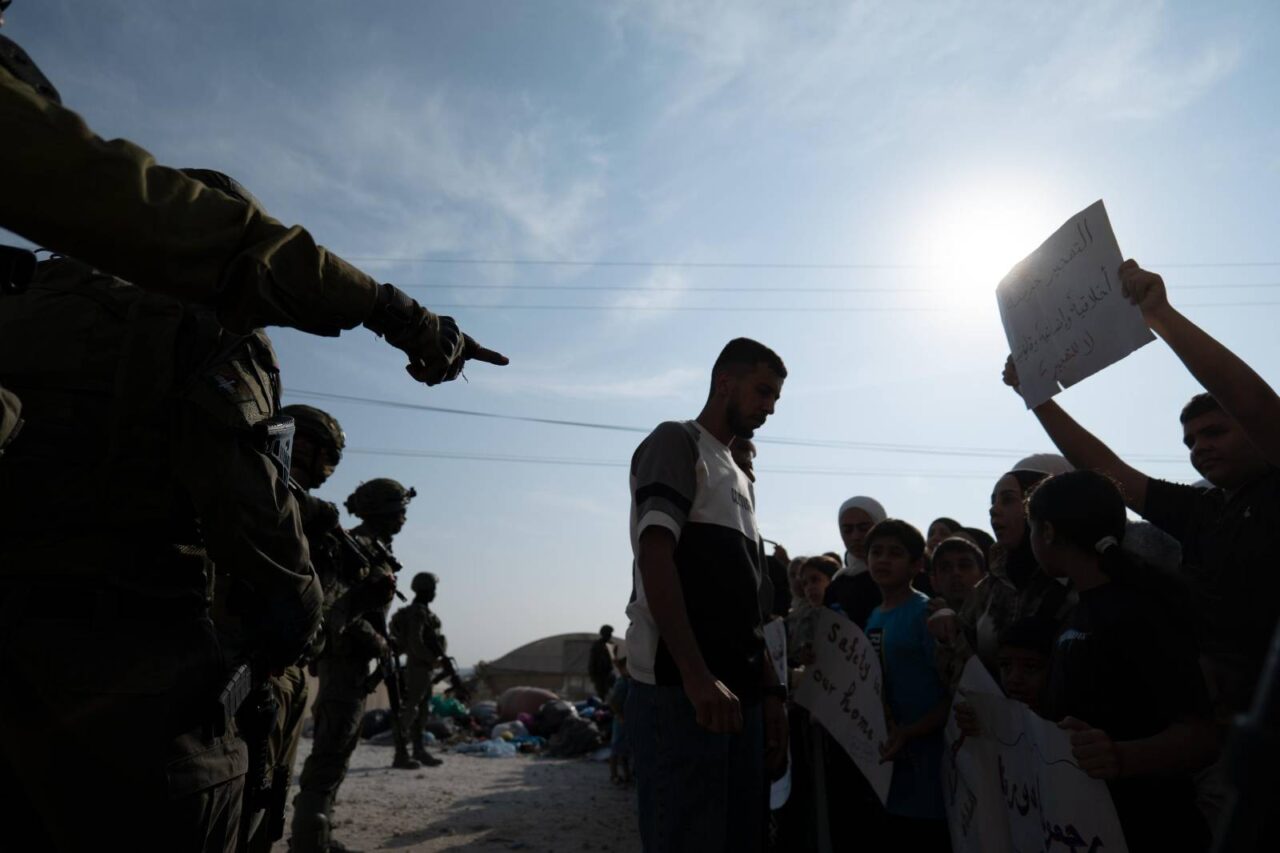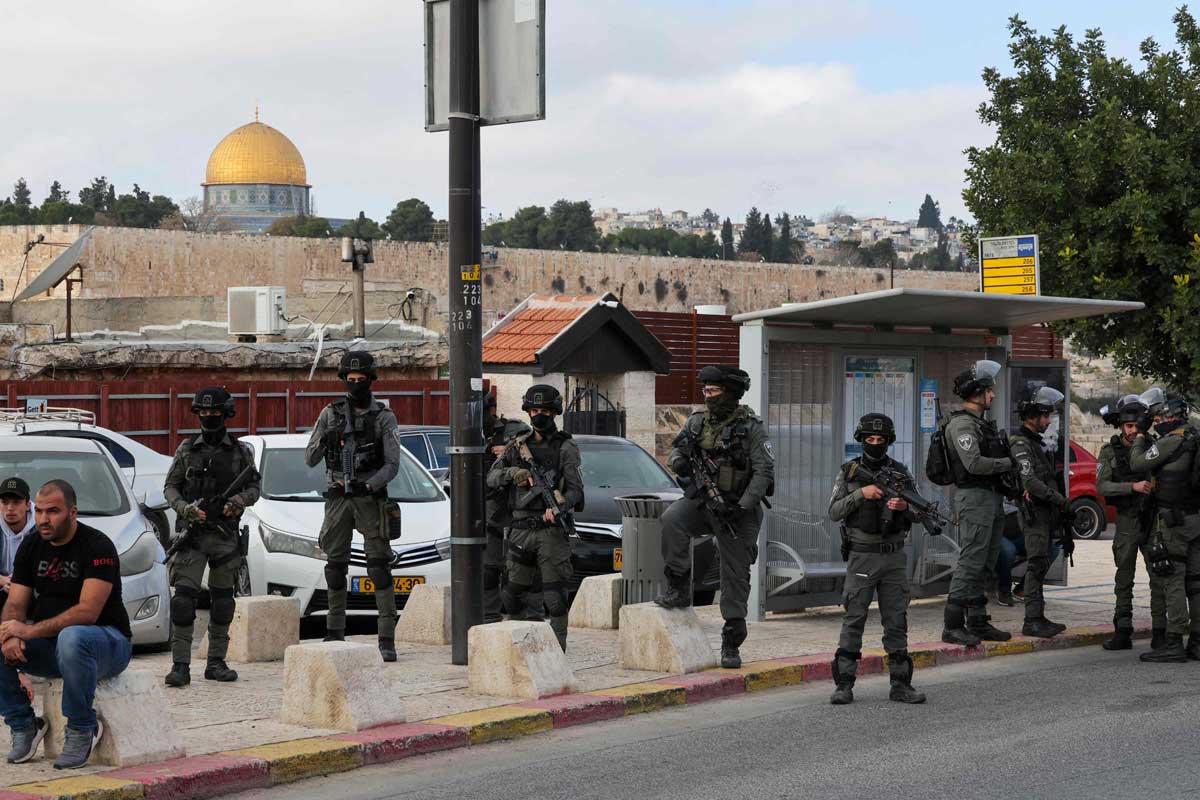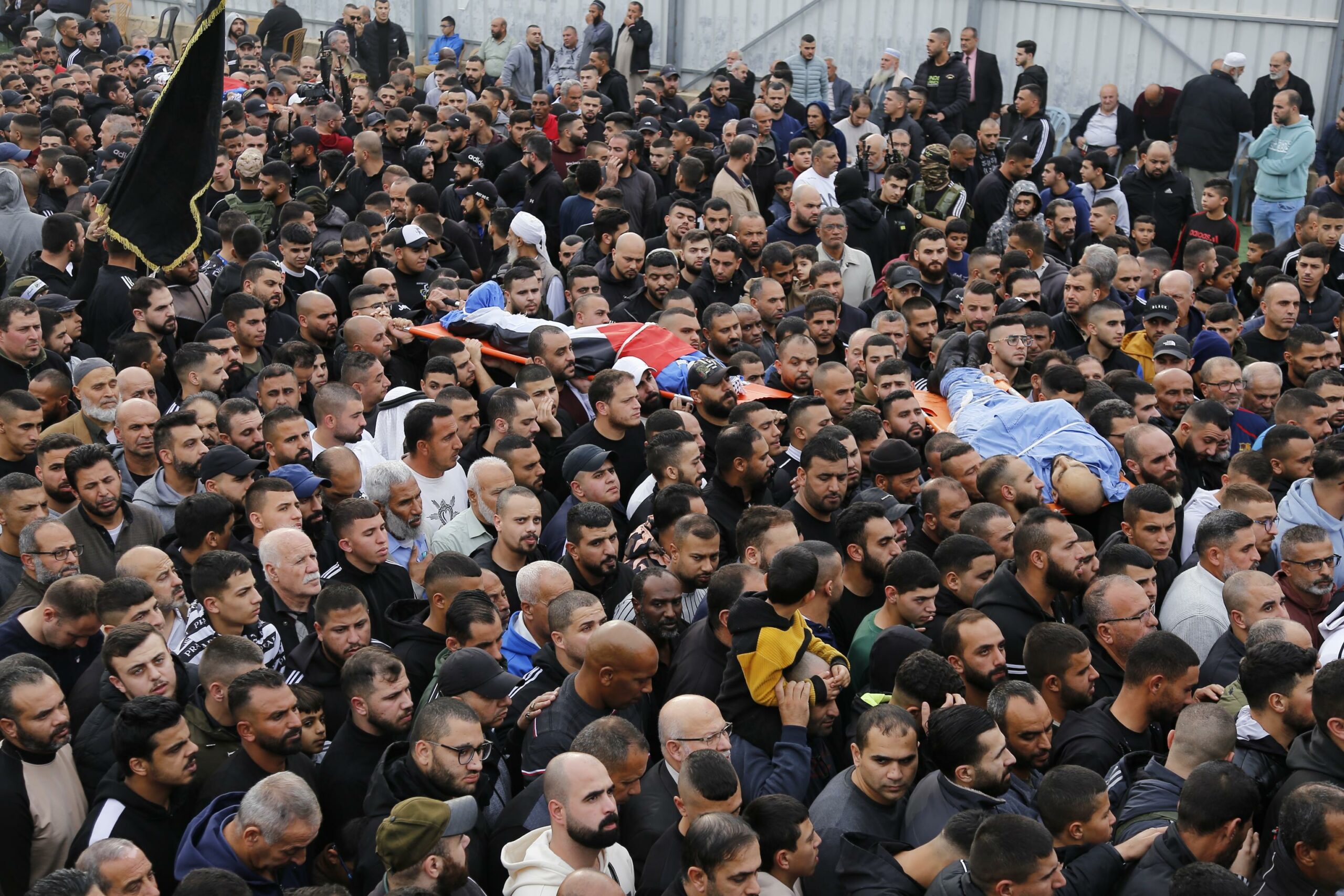Tag: Demonstration
-
Palestinian Refugees and the Right of Return
By Diana khwaelid Nur Shams camp – Dozens of Palestinians peacefully demonstrated to demand the return to their homes in the Nur Shams camp. Palestinian and international activists joined the demonstration in solidarity. “We want to return to our camp and our homes.” This was echoed by Palestinian demonstrators from the Nur Shams refugee camp…
-
A Dozen Weeks of Restriction: Muslim Worshipers Blocked from Al-Aqsa Mosque
29 December 2023 | International Solidarity Movement | East Jerusalem On Friday, December 29th, streets surrounding the Al Aqsa Mosque compound were filled with the sight of Muslim worshipers prostrate in prayer. Arbitrary access restrictions by occupation forces were amplified through the erecting of barricades to the Old City, allowing only some elders…
-
Tulkarm Bids Farewell to 5 Palestinians Killed in an Israeli Military Operation.
18 December 2023 | International Solidarity Movement | Nour Shams refugee camp By Diana Khwaelid An Israeli military operation lasted for more than 10 hours in the Nour Shams refugee camp. Destruction of infrastructure Dozens of military vehicles stormed the city of Tulkarem on the evening of Sunday, December 16, as they targeted the…



